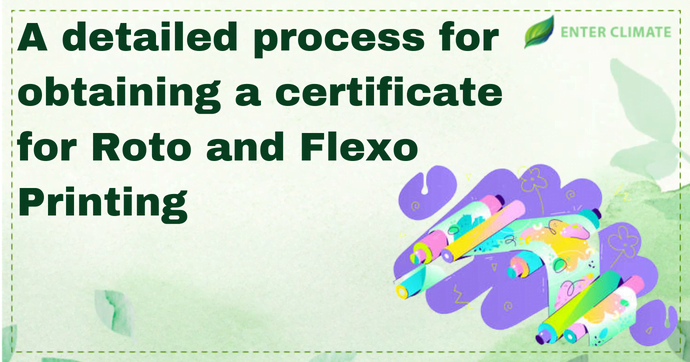How to Start a Coffee Powder Manufacturing Business?
 12 Jun, 2023
12 Jun, 2023 
The production of coffee powder includes roasting, grinding, and packaging coffee beans to create a powdered form that is widely enjoyed as a beverage worldwide. The coffee sector is highly profitable, with a market worth exceeding $102.5 billion in 2020. India contributes approximately 3.5% to global coffee production. The Northern and Southern regions benefit from favourable climates and topography for growing coffee beans. Consequently, starting a coffee business in India has recently gained popularity. As the global demand for coffee continues to rise, the coffee industry presents significant potential for aspiring entrepreneurs. We discuss How to Start a Coffee Powder Manufacturing Business.
Requirements for a Coffee Powder Manufacturing Business
Starting a coffee powder manufacturing business can be a promising opportunity for individuals in India. The requirements for a Coffee Powder Manufacturing Business include the following
Investment
An investment ranging from 3 to 10 lakhs would typically be adequate to establish a small-scale coffee powder business to cover essential expenses such as equipment costs (e.g., roasting machines), packaging materials, and initial marketing expenses. However, an investment of up to INR 50 lakhs or even more would be necessary for those looking to start a larger operation.
Licences and Approvals
To ensure compliance of the Coffee Powder Manufacturing Business with local regulations, acquiring the required permits and registrations from the relevant government authorities is important. These may include obtaining approvals from
- FSSAI Licence from Food Safety and Standards Authority of India (FSSAI)
- Business license from the Registrar of Companies (ROC)
- GST registration
- MSME Registration
- BIS (Bureau of Indian Standards) certification
Required space
A small-scale coffee powder business would typically necessitate a workspace spanning 500 to 1000 square feet, while a larger-scale operation would require a larger space ranging from 2000 to 5000 square feet. In addition to size, the chosen premises should meet certain additional requirements. These include easy accessibility, a reliable supply of water and electricity, proper ventilation, adequate lighting, and suitable storage conditions to ensure the quality and preservation of the coffee powder.
Raw materials
Coffee beans serve as the fundamental raw material for coffee powder manufacturing, and their quality significantly impacts the taste and overall quality of the resulting powder. To ensure superior quality, sourcing coffee beans from trustworthy suppliers is essential. You can choose to purchase coffee beans from reliable local suppliers or explore online platforms for easy procurement options.
Equipment
Various equipment will be necessary to facilitate the production process of the Coffee Powder Manufacturing Business, including roasting grinders, packaging machines, and other essential tools. Depending on the scale of your business, additional process equipment, such as blenders and winnowing machines, might be required. This equipment can be obtained from local suppliers or through online platforms providing a range of options for purchasing the needed machinery.
Production process
The coffee production process begins with the harvesting and sorting of coffee beans to eliminate any damaged or defective pieces. Subsequently, the beans undergo the roasting phase, which is essential for enhancing their flavour and aroma. This crucial step brings out the desired characteristics of the coffee beans. Once roasted, the beans are carefully ground into a fine powder using a grinding machine, ensuring consistency and uniformity in the resulting coffee powder.
After grinding, the blended coffee powder is packaged using a packaging machine, and it is crucial to store it in an airtight container to maintain its freshness. This careful preservation is necessary before the coffee powder is distributed for consumption.
Effective packaging and labeling play a significant role in branding and marketing the coffee powder. Labeling the packaging with the brand name, logo, and relevant information, such as the manufacturing date, expiry date, and ingredients is important. The quality of the coffee powder is directly influenced by the quality of the beans used during the roasting process.
Marketing
Create a distinctive brand name and brand identity that aligns with the values and vision of your business. This branding should resonate with distributors and wholesalers. To broaden the business’s reach, utilize diverse marketing channels such as social media, print media, and promotional events to connect with potential customers. Offering free samples, discounts, and loyalty programs can help attract customers and foster their loyalty.
Additionally, consider participating in trade shows and exhibitions to showcase your products to a wider audience and engage with potential customers. This proactive approach can significantly expand your customer base and build a strong brand presence.
Business profit
The profitability of a Coffee Powder Manufacturing Business depends on several factors, including the quality of coffee production, production capacity, marketing strategy, and distribution network in the market. However, with proper planning and execution, achieving a good profit margin is possible. Initially, the profit margin typically ranges from 10 to 20%, but as the business grows and establishes itself, it can increase to 30 to 40%.
India possesses a sizable domestic market for coffee, and the demand for coffee powder is on the rise, driven by the increasing popularity of coffee shops and cafes. Furthermore, India is a significant exporter of coffee and has the potential to tap into the global market, opening opportunities for expanded reach and increased profits.
Conclusion
Coffee powder manufacturing is a promising business opportunity with significant potential for profitability. The ever-growing global demand for coffee and the value addition and branding opportunities make it an attractive venture. However, success in this industry requires a focus on quality, differentiation, and staying attuned to evolving consumer preferences to maintain a competitive edge and ensure long-term profitability. To obtain licenses and comply with necessary legal requirements, it is highly recommended to take expert consultation to have a hassle-free experience and to avoid penalties due to non-compliance.
FAQ
- What is the main components of the coffee powder?
The main constituents of coffee powder are caffeine, tannin, proteins, fixed oil and carbohydrates.
2. What is the main difference between coffee powder and instant coffee?
Instant coffee is quickly made as the coffee granules dissolve into water, whereas ground coffee does not dissolve.
3. Is coffee powder manufacturing in India a good business option?
Coffee powder manufacturing is a great business option based on the demand of coffee in India, but it must have the following criteria, as follows:
- Well marketed
- Well priced
- Well sourced, manufactured and processed
- Well-packaged and handled
4. What license is mandatory for setting up a coffee business in India?
- A Coffee Powder Manufacturing Business will need FSSAI food safety license registration (business operator, such as Manufacturer, Trader, Retailer, and Distributor) as well as Business license from the Registrar of Companies (ROC)
GST registration, MSME Registration, and a BIS (Bureau of Indian Standards) certification.
5. What are the steps involved in coffee testing?
The steps involved in coffee testing are the following: smell, slurp, locate, and describe.
Read our Article:FSSAI’s Vegan Foods Regulation, 2022, Notified. What’s In Store For Vegan Food Businesses?












